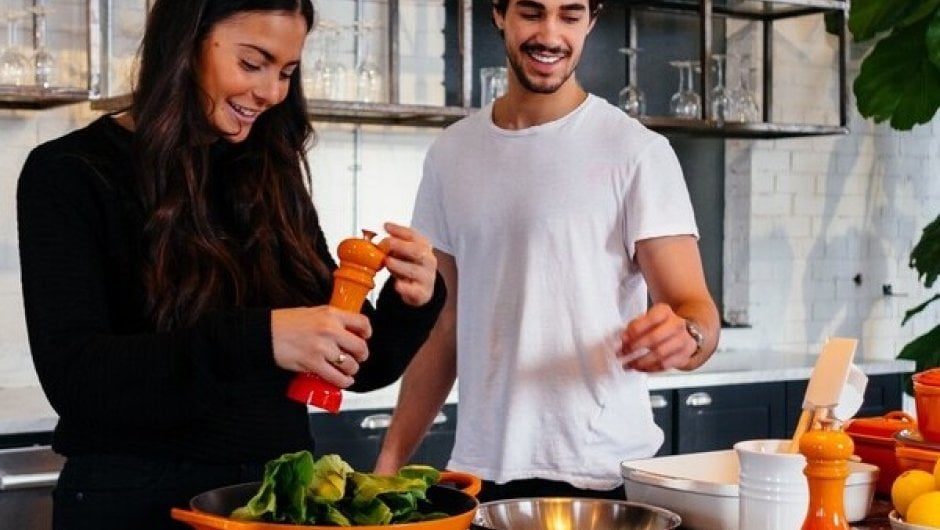What's on this page?
From managing your local sports centre or hotel, to planning around-the-world itineraries of cruise ships, there are a variety of careers for hospitality, leisure, and tourism graduates.
- Hospitality is primarily about hotels, bars, and restaurants.
- Leisure is often about events, sports centres, and multi-purpose venues.
- Tourism is about domestic and international travel, including sightseeing and attractions.
All three will give you commercial and business skills, customer service experience, rapid thinking, working in high-pressure environments, and superb communication skills. You could end up working for a big travel company, a restaurant chain or a hotel group, or managing your own business.
The impact you could make
- Become a travel consultant and design clients’ dream holidays in the UK or abroad.
- Work your way up to managing your own chain of restaurants or hotels.
- Work with children or adults with additional needs and show them the joy and power of outdoor leisure activities.
What you could study
- Transport economics and policy
- The digital customer experience
- Sustainable tourism
- Exhibitions and events
- Special interest tourism
- Global planning and logistics
- Bed and room management
- Hospitality policies
Chat to a current hospitality, leisure, and tourism student
Chat to a current hospitality, leisure, and tourism student using UniBuddy.
Some conversation starters for you:
- Ask which modules they really enjoyed.
- Find out how easy it was for them to make friends on their course.
- Do they have any tips on your personal statement?
- Did they do anything to prep for uni before they went?
- Are there books, podcasts or YouTube channels they would recommend?
Example module
Example project
Subjects it's useful to have studied first
Some hospitality, leisure, and tourism courses or apprenticeships will have requirements for previous qualifications in certain subjects. Entry requirements vary, so always check with the provider.
Travel and tourism
Business
Geography
Languages
Hard skills you'll develop
- Housekeeping
- Working with children
- Auditing
- Operations management
- Cost control
Soft skills you'll develop
- Management
- Customer service
- Communication
- Leadership
Careers: Where it can take you
Find out more about your career prospects from studying hospitality, leisure, and tourism. The following information is based on a typical hotel and accommodation manager role.
Available jobs
Average salary
Career options
Hospitality, leisure, and tourism
Business
Marketing and advertising
Retail

What is an… outdoor activities manager ?
You may be able to guess, but an outdoor activities – or education – manager runs outdoor activity centres or venues where people can try out a range of activities like sailing, kayaking, paddle boarding, horse riding, climbing, raft building… As well as sometimes working as an instructor, the manager also has responsibility for staff, the venue, and the health and safety of everyone who visits.
Find your ideal career
Take our careers quiz to find your ideal job matched to your personality type.Getting in: Entry requirements
Find out more about what you'll need to study hospitality, leisure, and tourism at university or as an apprenticeship.
Average requirements for undergraduate degrees
Entry requirements differ between university and course, but this should give you a guide to what is usually expected from hospitality, leisure, and tourism applicants.
A levels
Scottish Highers
Vocational

Catering and hospitality apprenticeships
Check out our industry guide to help you decide if a catering and hospitality apprenticeship might be right for you.Other subjects you may be interested in
Considering an apprenticeship?
Applying for an apprenticeship is just like applying for a normal job. Here’s what you need to know:
-
1
Deadline
Apprenticeships don't follow the same deadlines as applying to uni, the deadline is down to the employer. -
2
Where to apply
You apply directly through the employer.
-
3
No limits
You're not restricted to one apprenticeship application; you can do as many as you like. -
4
Apply to university and apprenticeships
There's nothing stopping you applying to university through UCAS, while also applying for apprenticeship vacancies. -
5
Find out more

Apprenticeship vacancies
Check out live apprenticeship vacancies in catering and hospitality.A day in the life of a Hospitality Apprenticeship
Explore further
Go deeper into topics around hospitality, leisure, and tourism with the following:
-
1
UK Hospitality – Insights
Delve further into what impact the hospitality sector has on the UK economy, with these insights from the industry’s trade body.
-
2
Components of Tourism
These YouTube videos by ‘tourism teacher’ Dr Hayley Stainton give an insight into how the tourism industry works, alongside other explainers on topics like sustainability, ecotourism, and dark tourism. -
3
Fred’s Last Resort
Join Fred Sirieux as he trains up a group of young Brits to run a luxury hotel.
Application advice
Whether it's personal statement tips or what to write in a cover letter for an apprenticeship application, our advice will help you get ahead in your hospitality, leisure, and tourism journey.Skills, experiences, and interests to mention
- What sparked your interest in these subjects and where do you hope it will take you? Can you give examples of things you’ve seen or experienced that have furthered your interest?
- Demonstrate you have the right personality and character to study hospitality, leisure, and tourism with good communication skills, an open mind, the ability to problem solve, multi-task, and manage. Give examples where you can.
- Try and get real business experience on your CV through part-time work or volunteering at a local hotel, restaurant, leisure or activity centre.
- Also mention project or team work you’ve done in school or during extracurricular activities and describe what skills you learned in those situations
- Finally, show you can balance a varied workload, either through previous hospitality or tourism experience you’ve had, or through balancing your different subject studies alongside life outside of school.


